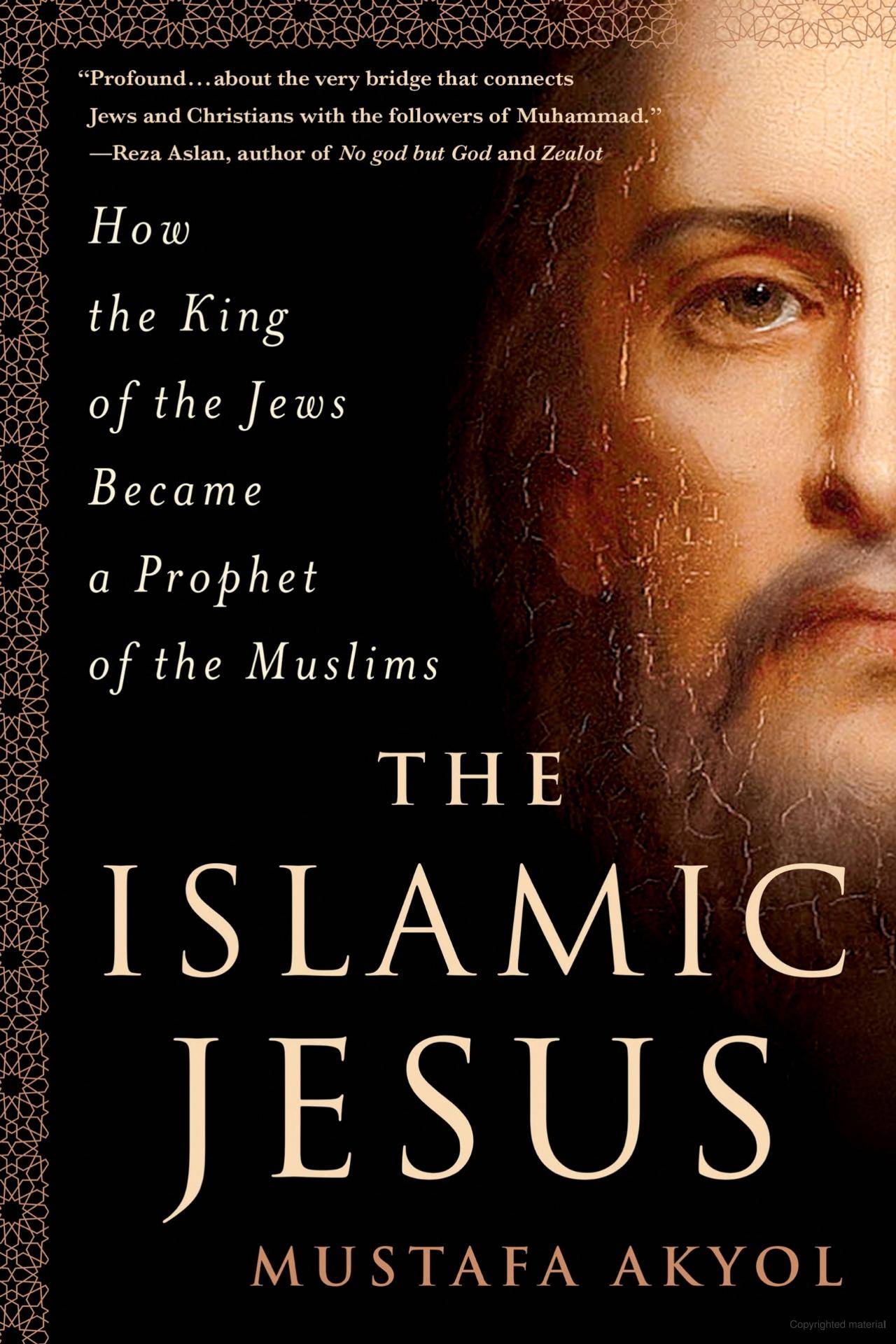Interfaith Insight - 2024
Permanent link for "How Can We Learn from Our Abrahamic Neighbors?" By Douglas Kindschi, Sylvia and Richard Kaufman Founding Director, Kaufman Interfaith Institute, GVSU on September 30, 2024
In the last Insight we discussed the relevance of this year’s Jewish/Christian/Muslim Dialogue addressing the theme: “The Challenge of Power, Morality, and Religion.” The Dialogue featuring Rabbi Dr. Donniel Hartman from the Shalom Hartman Institute in Jerusalem, Dr. Elaine Pagels from Princeton University, and Mustafa Akyol, Senior Fellow at the Cato Institute, will be held on Thursday, December 5 for our day-long and evening sessions. Register for this year’s Dialogue here.
In the last Insight, when we looked at Akyol’s just released book The Islamic Moses. Akyol, a long-time contributing opinion writer for The New York Times, also wrote many other books including his earlier work, The Islamic Jesus.
In this book he tells about walking in his hometown of Istanbul, formally known as Constantinople, and being handed a copy of the Christian New Testament, titled Incil, the Turkish work for gospel. That evening he began to read it and was moved by the Gospel of Matthew. As he puts it, “Most of the teachings, especially those of Jesus, struck me with their admirable passion, devotion, sincerity, and godliness. As a faithful Muslim — and thus a believer in the all-compassionate God, the God of Abraham — I found much of the Christian Scripture quite appealing and inspiring.”
As he continued to read, he began underlining the passages he liked with a blue pen and those he found objectionable with a red pen. When he got to the epistles of Paul he added many red lines. When he got to another epistle attributed to James, he found nothing objectionable. Furthermore, he found this document “was both full of teachings that deeply resonated with my faith and, more importantly contained nothing that contradicted my faith. My underling turned out to be all blue.”
This discovery led to Akyol’s studying early Christian history, especially the role of James, who was the leader of the Jewish community in Jerusalem who saw Jesus as the promised Messiah of the Jews, but not divine. Meanwhile, the gentile communities influenced by Paul’s message did not become Jewish nor did they follow the Jewish law. This split in the communities of followers of Jesus resulted in a division that was never resolved and led to a new religion, Christianity, separate from Judaism.
As Akyol explains, the Jesus story has a prominent role in the revelation to Muhammad recorded in the Qur’an and has much to say about Jesus and especially his mother, Mary. In the Qur’an there is only one woman mentioned by name, and that is Mary, the mother of Jesus. There is even a whole chapter named after her. Akyol notes that she, Maryam in Arabic, is mentioned by name 34 times in the Qur’an in contrast to only 19 times in the New Testament. Also in the Qur’an is the story of the birth of John the Baptist, the announcement from angel Gabriel to Mary that she will bear a son, and that it was a virgin birth.
Mary’s son Jesus, Isa in Arabic, is recognized as an important prophet and the Messiah to the Children of Israel. Akyol quotes the Qur’an: “We sent Jesus, son of Mary … to confirm the Torah that had been sent before him. We gave him the Gospel with guidance, light, and confirmation of the Torah already revealed — a guide and lesson for those who take heed of God.” (Qur’an 5:44, Haleem translation)
In a fascinating final chapter, Akyol explores “What Jesus Can Teach Muslims Today.” He suggests that just as Jesus had come to a Jewish community divided by sects and conflicted on how to deal with the power of the Roman empire, he taught an alternate way. Jesus, according to Akyol, invited his community “to focus on the spirit of their tradition rather than on its dry legalism. … Jesus relocated ethics to a more humane center. … It was a universal message that could appeal to all humankind.”
Akyol concludes this chapter, and the book as follows: “As Muslims, who are latecomers to this scene, we have disagreements with both Jews and Christians. But we have major agreements as well. With Jews, we agree a lot on God. With Christians, we agree that Jesus was born of a virgin, that he was the Messiah, and that he is the Word of God. Surely, we do not worship Jesus, like Christians do. Yet still, we can follow him. In fact, given our grim malaise and his shining wisdom, we need to follow him.”
Other insights in the "The Challenge of Power, Morality, and Religion" series:
"Does Conflict in the World Have a Religious Basis?" From Mustafa Aykol's The Islamic Moses: How the Prophet Inspired Jews and Muslims to Flourish Together and Change the World
"Can a Nation With Power Still Be Ethical?" From Rabbi Dr. Donniel Hartman'sPutting God Second: How to Save Religion From Itself
"Learning From History and From Positive Religious Teachings" From Elaine Pagels, Ph.D.'s The Origin of Satan: How Christians Demonized Jews, Pagans, and Heretics
"Loving Country Has Limits Imposed by Biblical Covenants" From Rabbi Dr. Donniel Hartman's Who Are the Jews — And Who Can We Become?
"Faith, Grief, Struggle and Renewal: A Personal Journey" From Elaine Pagels, Ph.D.'s Why Religion?: A Personal Story


